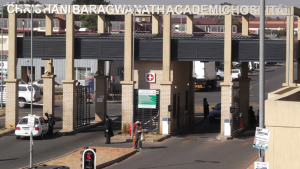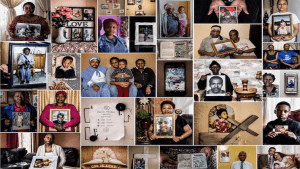South Africa is among the countries ranked as having the lowest rate of mental wellbeing in the world, according to the Mental Health Million Project’s latest world report.
However, a new research study by the South African Depression and Anxiety Group (SADAG) reveals that ongoing rolling blackouts in have strained residents’ mental wellbeing.
The study found anxiety, panic, depression and isolation are what people struggle with the most during power cuts.
Only about 5% of the national health budget in the country is allocated to mental healthcare, leaving the majority of people relying on the provision of community-centred services.
One of the patients at a local community mental health centre in Diepsloot elaborates on how load shedding is a barrier to accessing services: “When I have to come here for my counselling, the time allocated to me by counsellor Nono is also load shedding. Then because of load shedding I end up running late because there is load shedding.”
Much of the public interest is focused on the impact load shedding has on businesses and the economy. SADAG says there is insufficient research data on the exact ways the ongoing power cuts affect our feelings and mental well-being.
As a result, it embarked on a national research study together with a Researcher from the University of Johannesburg to establish how the load shedding is affecting people mentally in their daily lives.
SAGAD’s Development Manager Fatima Seed is at the forefront of the research study and says the outcomes are compelling.
She says, “I think for a lot of the respondents, what we found were people going through anxiety, people going through stressful situations and the feeling of isolation because if we look at it anxiety builds up from your patterns being disruptive and the stress comes from not being able to attend to your work and your normal functionality. It becomes more difficult for you to communicate with family members and loved ones and there’s a sense of isolation.”
According to the report, 31% of the respondents reported problematic family relationships.
South African citizens’ experiences mirror some of these key findings; with many saying the load shedding is indeed affecting their mental wellbeing.
“It is totally depressing you know, we have completely lost hope,” says one of the Citizens.
“Just when you want to sit down and relax, me in my old age, it’s affecting me mentally, psychologically. So it’s affecting all spheres of our lives,” says another citizen.
The outcome of SADAG’s research may shed some light on how best to scale up access to mental healthcare services and coping mechanisms for people across the country, bearing in mind, it may be lights out for much longer than anticipated.





